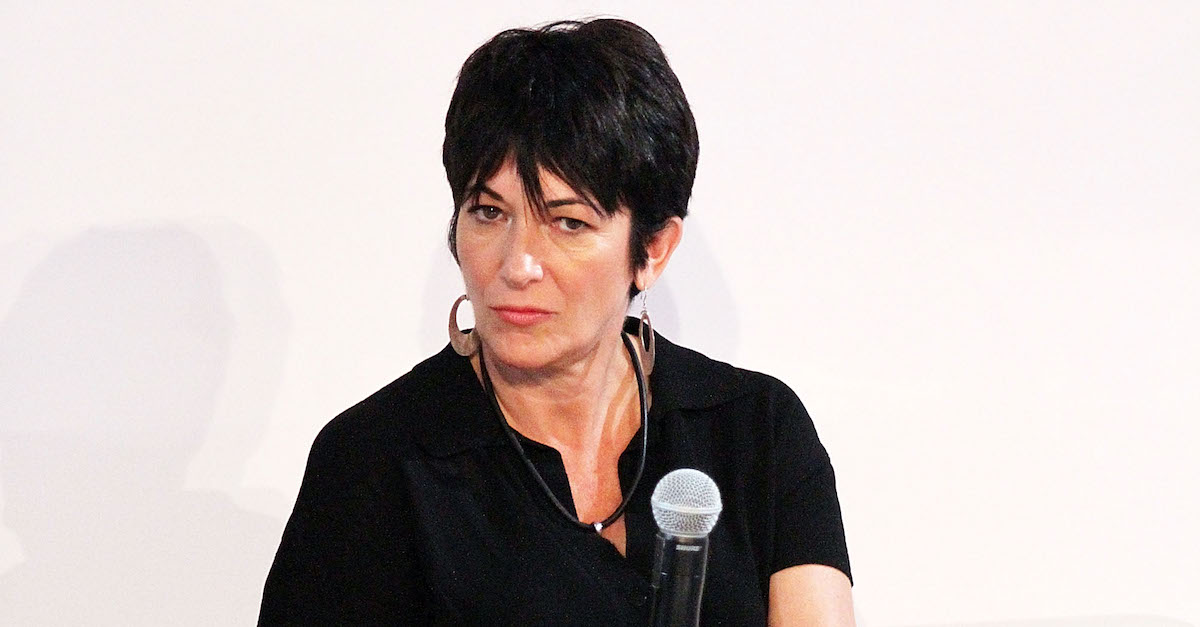
A federal judge in New York on Thursday ordered a series of court documents from the long-settled defamation lawsuit against accused sex-trafficker Ghislaine Maxwell to be made public, rejecting the former Jeffery Epstein associate’s efforts to keep the information sealed.
The documents at issue were originally filed in connection with alleged Epstein victim Virginia Giuffre’s lawsuit against Maxwell. Though Giuffre’s defamation case against Maxwell ended in 2015, Giuffre’s attorneys have fought a protracted legal battle seeking to publicly release documents initially filed under seal that may contain allegations against other public figures from Epstein’s elite social circles.
Emphasizing the importance of transparency in the federal court system, U.S. District Judge Loretta Preska ruled that the vast majority of the documents in question constituted “judicial documents.”
“Having taken a particularized view of the documents, the court concludes that each document reasonably had a tendency to effect the court’s ruling and is thus a judicial document,” Preska said during a telephone conference on Thursday morning in the Southern District of New York (SDNY), noting that such documents are accorded the presumption of public access.
Maxwell’s attorneys had argued that unsealing additional documents from the defamation case would jeopardize her right to a fair trial because rather than increase transparency to the judicial process, news outlets would sensationalize the information and taint the jury pool.
But Judge Preska quickly rebuffed the assertion.
“It is not the job of the Court to police press coverage,” Preska noted. “Tabloid fodder doesn’t diminish the importance of materials that could reasonably affect the court’s decision on a motion.”
However, Judge Preska did order that all identifying information with respect to non-party “unidentified Does” in the documents be redacted, with the exception of Does 1 and 2. Doe 2 is Harvard Law professor emeritus and criminal defense attorney Alan Dershowitz, who had previously filed a letter with the court asking that his name be unsealed in the materials.
The parties are required to submit unsealed documents to the court — with redactions to black out the identifying information of all non-party Does — in two weeks.
The only filing that Preska declined to unseal was a motion to compel filed by Maxwell, which alleged that Giuffre had been withholding a settlement agreement reached between her and Epstein, even after Maxwell’s attorney obtained a waiver from Epstein concerning the agreement’s confidentiality clause. Preska reasoned that because both parties had submitted a joint stipulation resolving the motion during the earlier defamation case which stated that any further proceedings on the issue were “moot,” the presumption of public access did not attach.
Preska concluded the hearing by asking the parties to confer in private and see if they can devise a method for moving through the document review and unsealing process more quickly, asking for suggestions within three weeks.
Maxwell’s criminal sex-trafficking trial is slated for November.
Some of the documents that were ordered unsealed are:
Filed by Giuffre’s lawyers, the filing alleges that Maxwell “has not disclosed, nor produced data from, the email account she used while abusing Ms. Giuffre from 2000-2002 in violation of this Court’s Order.” It also asks the court to compel Maxwell to produce the data and to instruct the jury that it can draw an “adverse inference” that Maxwell concealed relevant evidence.
“Despite the Court’s orders that Defendant produce responsive documents from all her email accounts from 1999 to the present, Defendant has neither disclosed nor produced from the email account that she actually used to communicate from 2000-2002,” the motion stated.
This filing from Giuffre’s legal team is almost entirely redacted. But based on the available text and the cases cited as precedent, it appears connected to questions about Maxwell’s sexual history. One of the only unredacted portions of the document, a little more than a page into the memo, states: “In response to Ms. Giuffre’s assertions about Defendant recruiting of females for sexual purposes, Defendant has made the sweeping claim that Ms. Giuffre’s assertions are ‘entirely false’ and ‘entirely untrue.’ The cases cited deal with questions about past sexual relationships that are “relevant to a defense of substantial truth.”
Document 345: PLAINTIFF’S MOTION TO COMPEL THE PRODUCTION OF DOCUMENTS SUBJECT TO IMPROPER OBJECTION AND IMPROPER CLAIM OF PRIVILEGE
Document 370: DEFENDANT’S MOTION FOR PROTECTIVE ORDER REGARDING PERSONAL FINANCIAL INFORMATION
Document 370: DEFENDANT’S MOTION FOR PROTECTIVE ORDER REGARDING PERSONAL FINANCIAL INFORMATION
Document 649: MOTION FOR PROTECTIVE ORDER FOR NON-PARTY WITNESS
[photo by Laura Cavanaugh/Getty Images]